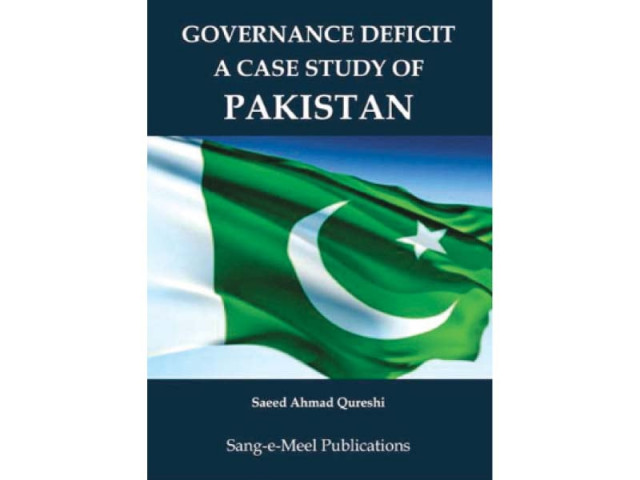Book launch: Reforms are tough, says Javed Jabbar
Biggest failure in terms of denial of justice is organised crime and violence, says author

This was said by Javed Jabbar on Thursday. He was speaking at the launch of “Governance Deficit: A Case Study of Pakistan”, a book written by former bureaucrat Saeed Ahmed Qureshi. The event was organised by Social Policy and Development Centre (SPDC) and Strengthening Participatory Organisation (SPO) on Thursday at a local hotel. It was hosted by Javed Jabbar and Khalida Ghaus.
Whether it is France, Pakistan or America, reforms are very tough. We cannot reform Senate, National Assembly, or provincial assemblies but we have to start by reconstructing our political bodies, Jabbar said.
“The biggest failure in terms of denial of justice is organised crime and violence, particularly in terrorism and sectarian violence,” Qureshi said. The author, who was deputy chairman of the Planning Commission, has encapsulated the many insights he gained in his 36 years of service. The book provokes people to revolt and reform incrementally, the poor judiciary of Pakistan.
“An investigation, when it begins has to be completed within seven working days, but nine years have passed since the assassination of Benazir Bhutto, 13 years have passed since the two assassination attempts on Musharraf, and eight years have passed since the 2008 Mumbai terrorist attacks, all with no results,” Saeed said while commenting on the weakness of the judicial system in dealing with terrorism cases.
“Some well-known people like Malik Ishaq, one of the founders of Lashkar-e-Jhangvi, involved in 70 murder cases, was released on bail. Similarly, Riaz Basra, co-founder of the same organisation and facing 300 cases of terrorism, could not be convicted,” he said.
“Asia Foundation Adviser Erik Jensen conducted a survey of civil cases in Sindh, which take 20 years to be decided, while in the high court, the time span is six years,” the author added while explaining the delays in the dispensation of justice.
The ceremony had some renowned guests such as Zaman, who while supplementing the cure for governance deficit, said, “The supremacy of parliament is very important. It is not the speeches, the rhetoric or the exhortation that matters, but the law, rules, regulations, and monitoring mechanisms.”
“We campaign in poetry but we govern in prose,” Zaman added while quoting Mario Cuomo.
Published in The Express Tribune, August 20th, 2016.



















COMMENTS
Comments are moderated and generally will be posted if they are on-topic and not abusive.
For more information, please see our Comments FAQ